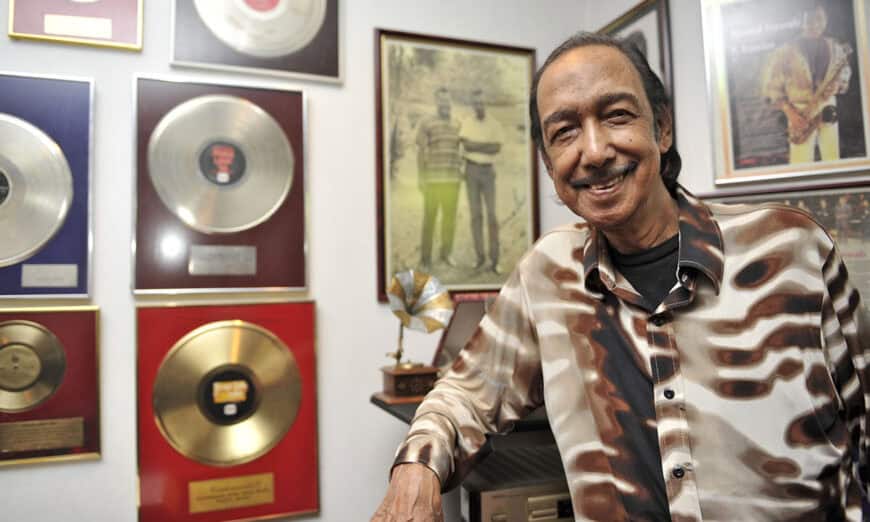“Music, when soft voices die, vibrates in the memory” – Percy Bysshe Shelley
THIS poignant quote speaks volumes about how singers and musicians touch hearts and lives through their art. As the year 2024 draws to an end, it is time to reflect, honour and celebrate the legacy of some of the Penang musicians who have left us this year, their melodies lingering in our memories.
Among the luminaries who have gone to the “other side” this year were pianist/vocalist S. M. Idrus, vocalist Ray Rozells and maestro Ooi Eow Jin.
Then a cloud of deafening silence engulfed the music fraternity in Penang as it bid farewell to four musicians in the last week of November 2024. Condolences and accolades poured forth on normal news and social media when people learnt of the passing of Tan Sri Datuk Seri Dr Ahmad Nawab on Nov 24, Lee Chong Heen the following day on Nov 25, Dato’ Basir Ahmad on Nov 27 and Ralph Jeremiah on Nov 28 – all within a week.
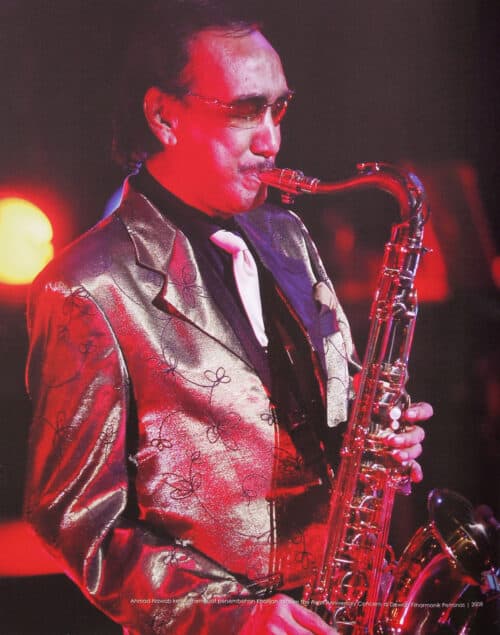
Penang-born Ahmad Nawab was a towering figure in Malaysian music. Born on 6 April 1933 in a house in Transfer Road, Ahmad was the first child of Nawab Khan Rana Khan, a musician who migrated to Malaya with the Indian Army and his wife, Juhara Bee Fakir Maidin.
In an interview conducted by James Lochhead and Paul Augustin for their book, “Just For The Love Of It”, Ahmad said that his interest in the entertainment and music world began at an early age, particularly by his captivation with cinema and theatre.
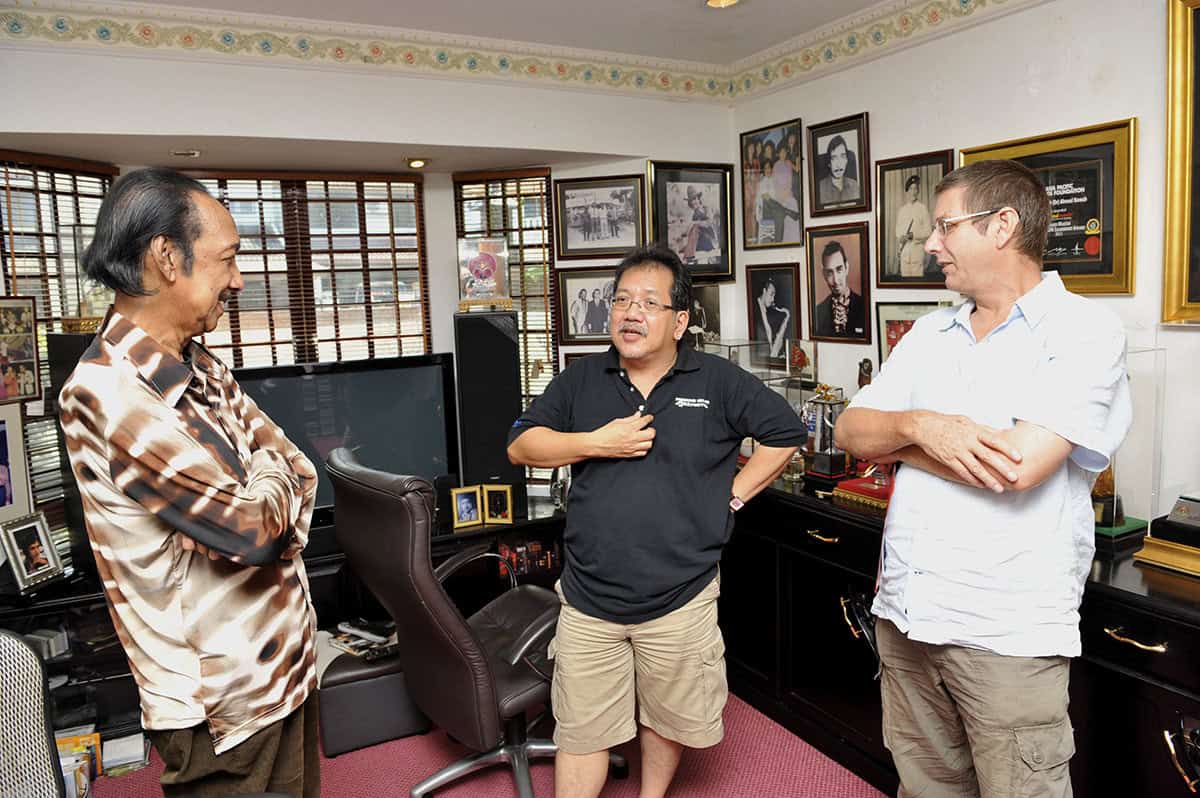
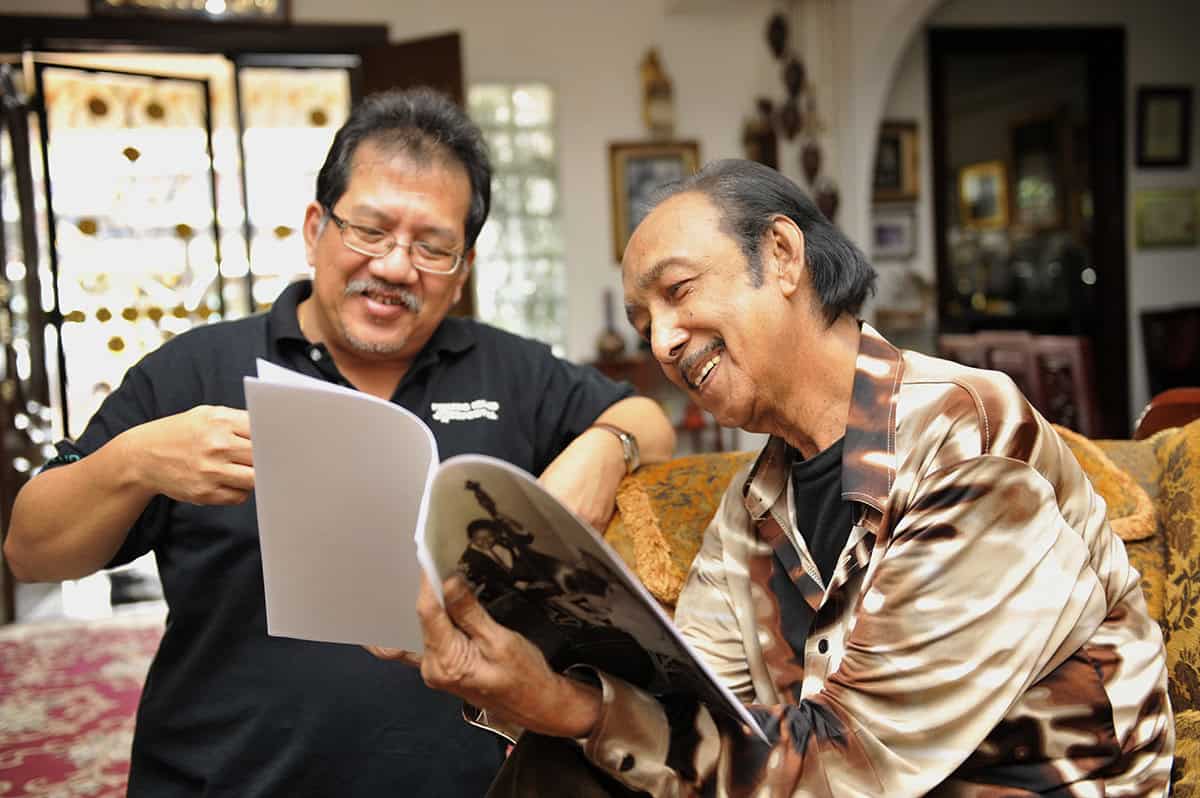
He aspired to be a musician, but his father was against it as he knew how hard it was to make a living playing music and was adamant that his son would not suffer similar hardship. Heeding his father’s advice, Ahmad, after failing Standard Five examinations, attempted to enrol in a vocational school in Batu Lanchang. But fate would have it that the school had only a fixed quota of students and the person lining up in front of him was the last person to be accepted into the school and Ahmad was turned away.
This setback further fuelled his ambition to pursue music as a career, but he had a hard time persuading his father and so he turned to his mother. According to Ahmad, it was his mother who finally managed to persuade his father to let him follow his passion. Ahmad’s father insisted that if he were to be a musician, he had to be the best and pushed Ahmad into reading music and learning theory (something that he, the father, had never had any formal training in).
Ahmad always acknowledged that one huge motivation driving him to his achievements was his desire to make his father proud and to show the world that his father and his family – considered outsiders and without formal musical training – had produced someone worthwhile.
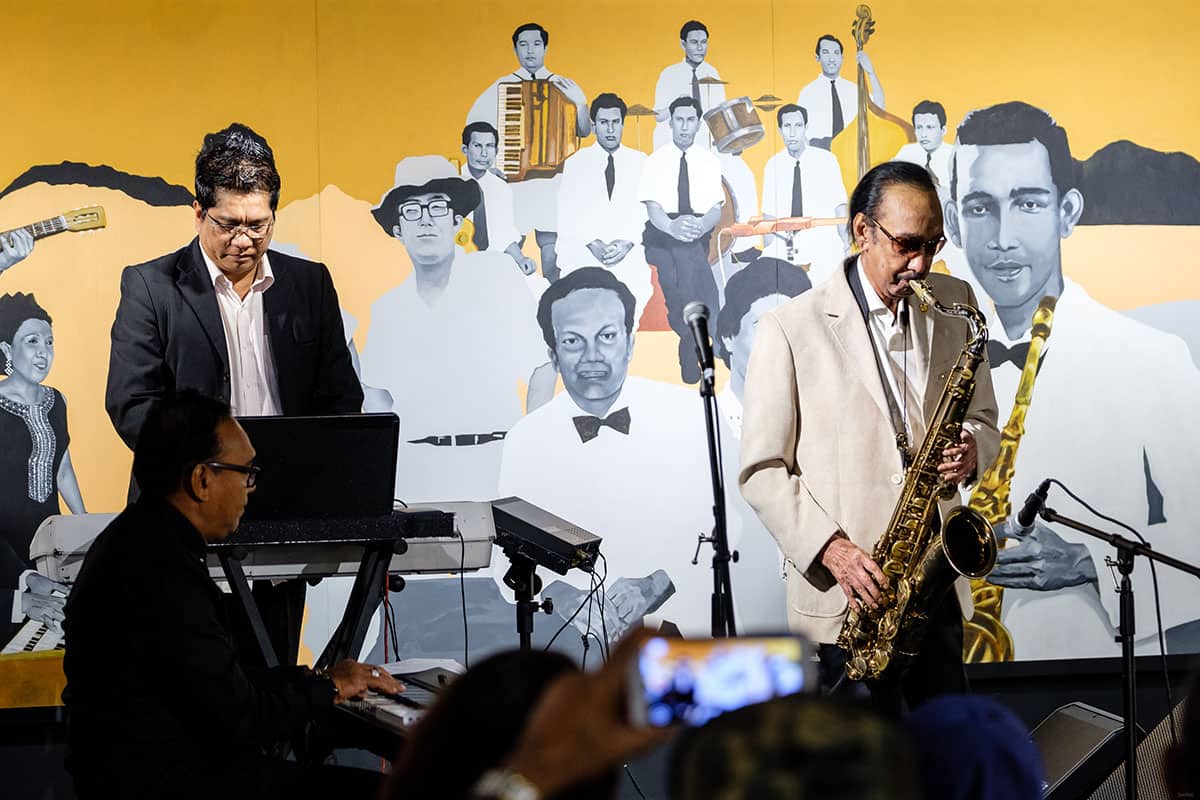
In 1949, after picking up the basics from his father, Ahmad joined the Penang Municipal Band as a clarinet player. During his time with the band, he took the opportunity to interact with more professional musicians and deepen his understanding of music more systematically.
A year later, Ahmad joined the Kedah Police Band in Alor Setar, as an auxiliary police officer on a monthly wage of $90. It was during this period that he discovered a book about Glenn Miller, which opened his eyes to the vast possibilities available to a musician – composing, arranging, lyric writing, producing albums, film scoring and conducting orchestras.
This book was an inspiration to Ahmad and it was soon after that, as he stood in the dark gazing at the moon one night, he composed his first song, which was destined to be one of his most famous songs – ‘Bintang Malam’.
Ahmad realised the limitations of playing in the police band, which focused primarily on classical pieces and marching songs and it was not what he wanted. After two years with the Kedah police band, he returned to Penang and rejoined the municipal band in George Town headed by Bhagart Singh, playing third clarinet while his father took the position of first clarinet in the same band.
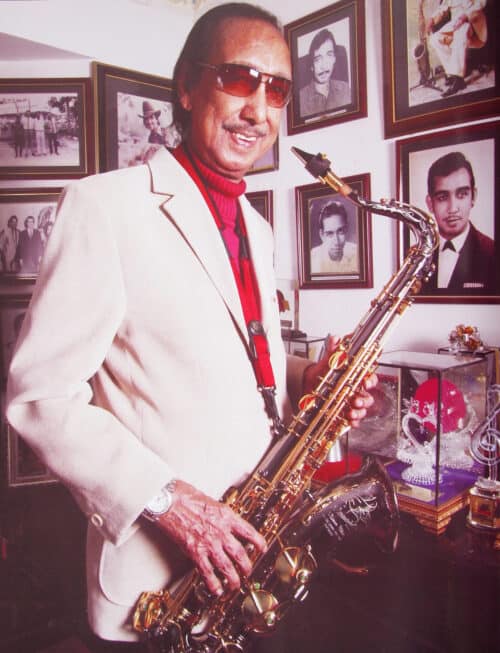
Ahmad once remarked, “The instrument that I loved and wanted to play was the saxophone but earning only $90 a month, I couldn’t afford it. So, whenever the band took a break, I would practise on another band member’s saxophone, but I always yearned for more!”
Inigo Geronimo, who was also playing clarinet in the municipal band, gave him the opportunity to expand his musical education by playing in cinemas and clubs in the evenings. “I played all sorts of music – Arabic, Malay, the latest Western hits,” Ahmad once recalled.
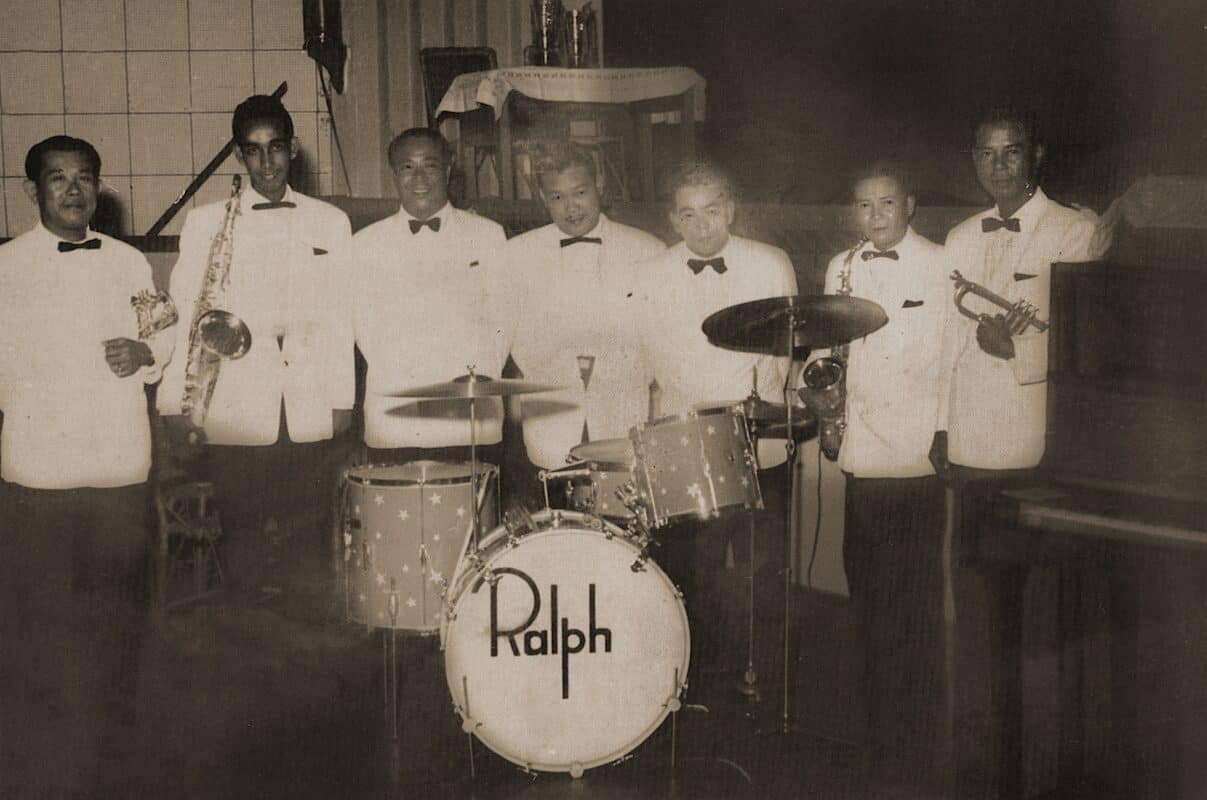
Inigo invited him to perform at New World Park where he earned $4 a night. He eventually joined Wembley Cabaret, playing alongside Inigo, Bertie Limuco, George D’Almeida, Raphael Tagnipis, Joe Perkins and others. It was at Wembley that Ahmad was asked to play the tenor saxophone. He could not afford one, so the leader of the band offered him his, and Ahmad, who was earning $120, paid him back in instalments of $40 a month.
Ahmad once shared how he cycled every evening from his home behind Jalan Terengganu to town with his saxophone. “On my way home, the path to the house was very dark and ran next to a Japanese cemetery. I was so scared that I would wait at the entrance until I saw someone else going in, then I would follow – cycling fast and shouting to my mum to switch on the lights!” he had recounted with a smile. This went on for two years!
Ahmad also performed with Joe Rozells’ band at the Piccadilly. Reflecting on those times, he once shared, “Joe was a quiet man. He would start a song without telling you what it was or the key, and you just had to listen and pick it up fast.”
In addition to his performances, Ahmad participated in singing competitions whenever he could and enjoyed collecting old movie posters.
An enterprising and hardworking musician, Ahmad joined several keronchong groups and formed his own band, Orkes Juwita. In the early 1950s, he established a music academy to help nurture young Malay musicians and later created the Mambo Murni Orchestra, specialising in Latin music. With Ahmad Daud as a vocalist, the orchestra performed at various functions and made occasional appearances at Padang Tambun and on Radio Malaya.
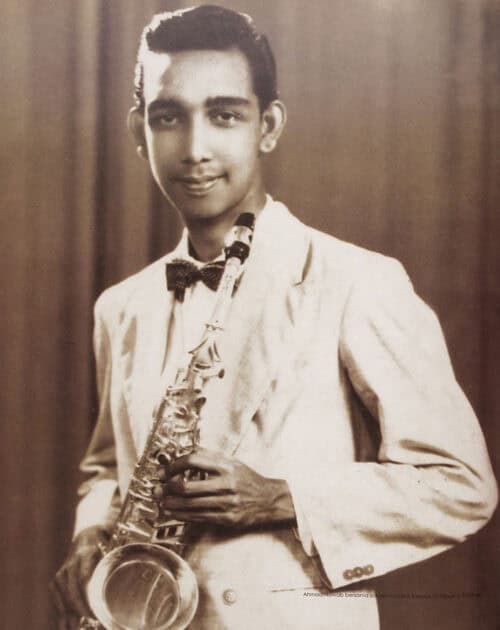
News of Ahmad’s talent and his orchestra spread and eventually came to the attention of a well-known musician in BB Park, Kuala Lumpur: Ahmad Amin aka Ahmad Trumpet. He invited Ahmad Nawab to join his band and thus Ahmad made his move to Kuala Lumpur in 1957.
Ahmad Amin was taken by surprise when he first met Ahmad Nawab, particularly upon learning that the young musician was just 20 years old. Expecting the leader of an orchestra to be much older, Ahmad Amin was further impressed when he heard Ahmad Nawab play. Recognising his talent, he offered him a salary of $260 a month, a substantial sum at the time.
Playing at BB Park proved to be a challenging period for Ahmad Nawab, but he persevered for two years, knowing opportunities in Penang were limited. A chance meeting with Ahmad Merican one evening led to a new opportunity at the Embassy Hotel. However, this gig lasted only six months before the hotel closed down, and according to Ahmad, he did not eat for three days, only drank water.
After three days, one of the members of the band managed to secure a gig at the British camp that paid $25. Following that, he got a job at the Federal Hotel with the HH Tann Orchestra playing alto saxophone.
In 1960, an old acquaintance, Alfonso Soliano, offered him an opportunity to join the Puspahati orchestra (which eventually evolved to become Radio Malaya’s first orchestra) playing the baritone saxophone.
When Ahmad joined the orchestra, he was the first person in the country to play the baritone saxophone professionally. From then on, Ahmad’s music improved a great deal, he had the privilege of studying music arrangement from Berklee lecturers who were attached for a time to the orchestra.
His hard work saw him rise and gain a foothold as a pivotal figure in the entertainment industry – in film, radio and television.
He began to receive offers to write songs. In 1975, Ahmad became a full-time composer, arranger and producer with EMI. He joined WEA in 1978 in the same capacity and set up his own recording company MRC in 1983 before establishing his own production house called Nawab Production in 1986.
Over a career spanning more than six decades, Ahmad composed more than 2,000 songs, with almost 70 singers from all over the region recording his works.
Many of his songs have become standards. Besides his first song ‘Bintang Malam’ which was recorded by Zaharah Agus, Uji Rashid and Saloma, other notable songs include ‘Kau Kunci Cintaku Dalam Hatimu’ (made famous by Ramlah Ram), ‘Setulus Hati Mu’, ‘Sabar Menanti’, ‘Tiada Maaf Bagi Mu’, ‘Antara Matamu dan Mataku’ and ‘Wajah Kesayangan Hamba’.
Ahmad regarded his commission by the Malaysian government to compose a song promoting tourism as his greatest and proudest musical achievement. That song, “Malaysia Truly Asia”, allowed him to fulfil his promise to his parents — to create a song that would resonate across the globe.
The composition was recorded in 17 languages, incorporating instruments and rhythms from Malaysia’s diverse races and cultures, beautifully showcasing the nation’s rich heritage and vibrant identity.
Ahmad also released a number of instrumental albums and award-winning musical scores for films, earning him numerous accolades during his lifetime. These include the Anugerah Industri Muzik, the Anugerah Seniman Negara (2006), and the Anugerah Seni Parfi from Indonesia for his contributions to the entertainment industry. He was also honoured with an honorary doctorate from Universiti Putra Malaysia (2000).
In recognition of his achievements, Ahmad was conferred the title Datuk. He was awarded the Pingat Darjah Setia Pangkuan Negeri by the Governor of Penang in 1996 and the Pingat Panglima Jasa Negara by the Yang di-Pertuan Agong in 2004.
At an event titled Ahmad Nawab – The Man and His Music held at the Penang House of Music during the 2017 George Town Festival, Ahmad performed selected songs and shared insights into his remarkable musical journey. As a Seniman Negara, he expressed a sense of disappointment, noting that despite his vast experience and contributions, no one had approached him or shown interest in tapping into the wealth of knowledge he had to offer.
When he was once asked about his wishes or future aspirations during the discussion, Ahmad concluded with a poignant reflection: “It is hard to say, as I’ve done everything there is to be done and fulfilled all the promises I made to my parents.”
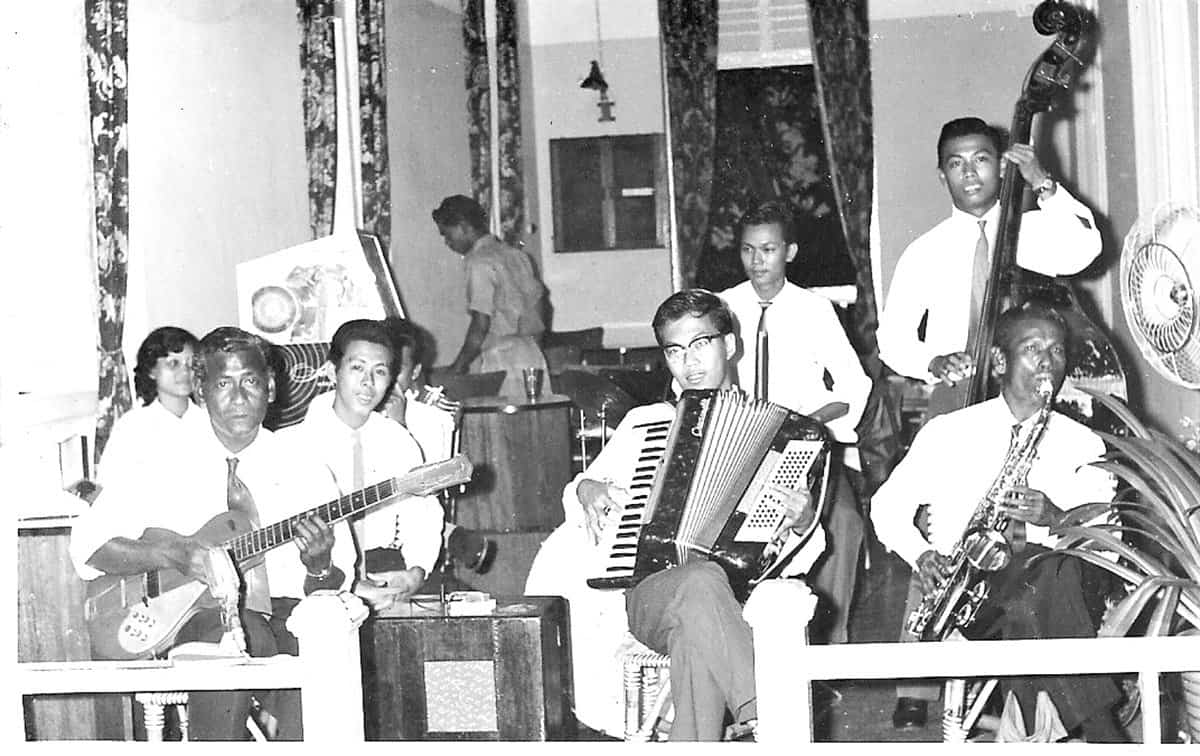
Lee Chong Heen
Growing up in Perak Road in the 1950s, Chong Heen’s interest in music was enhanced and nurtured by his father, who had a band. He would eagerly listen during their practices and performances while also seizing the opportunity to follow the municipal band.
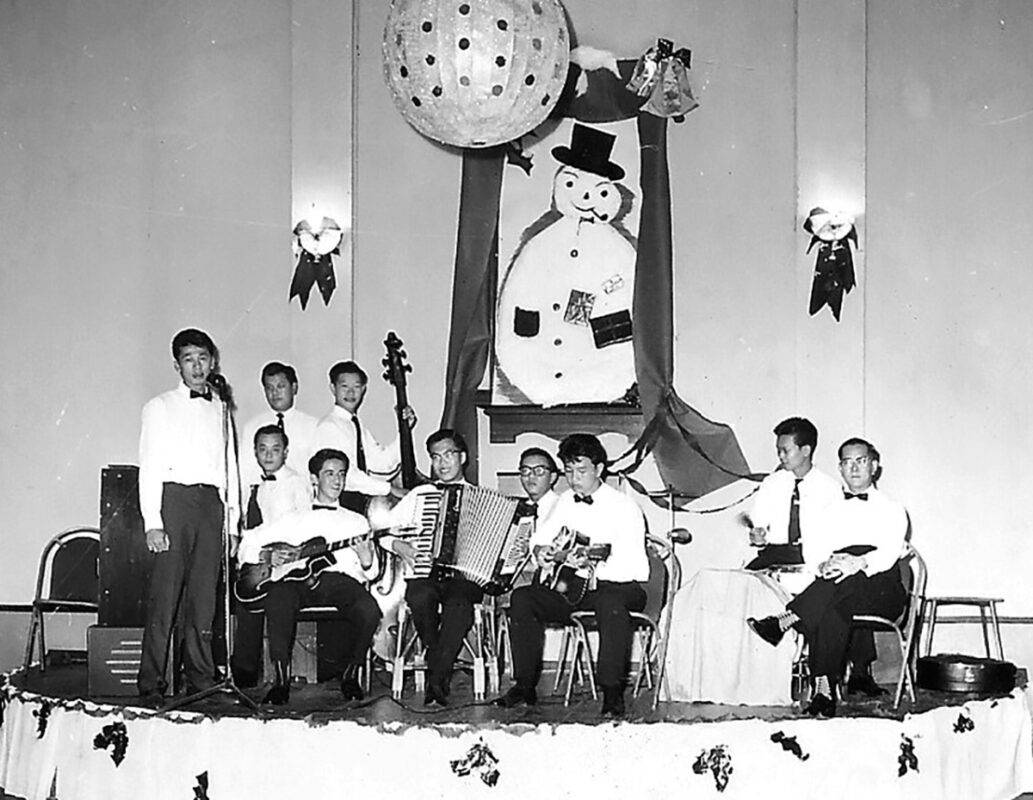
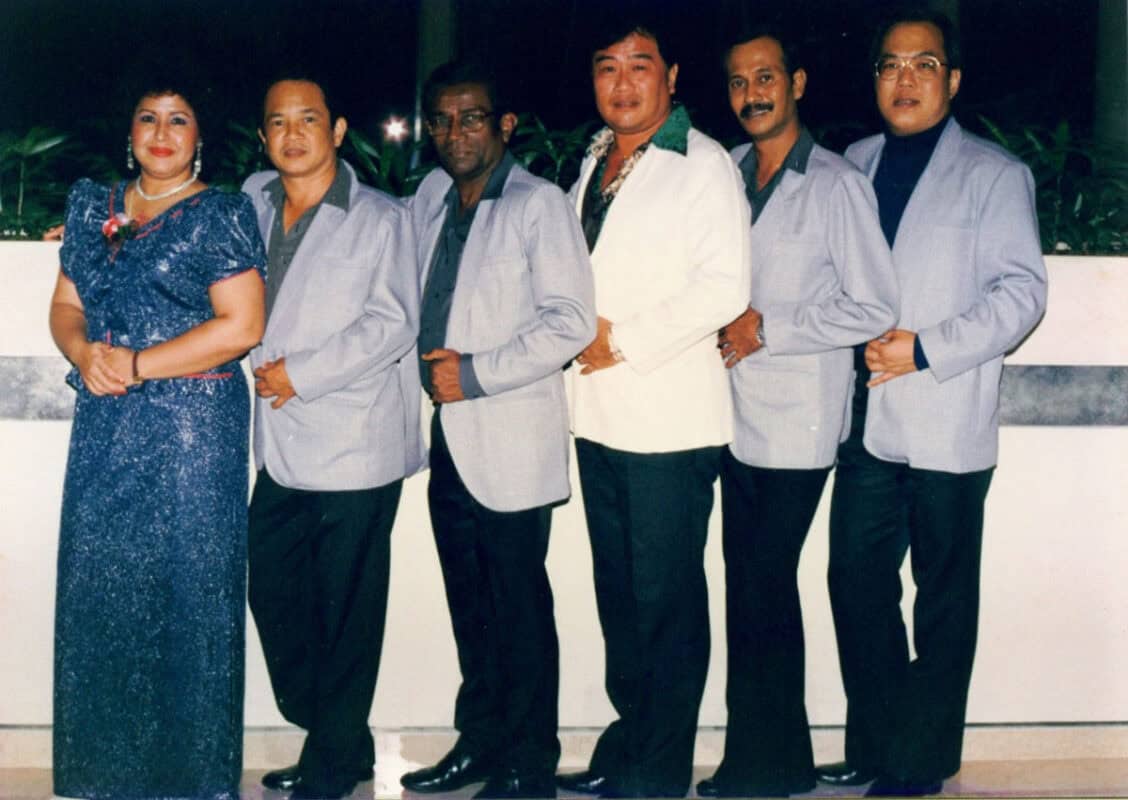
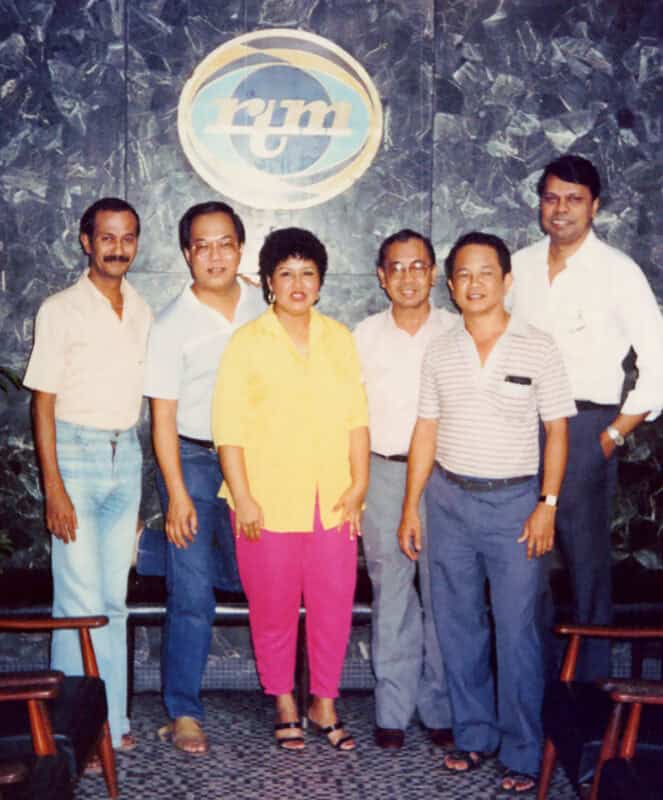
Whilst still in school, he joined a band made up of schoolboys called “The Jokers”. The band took part and came third in a talent competition run by Rediffusion and sponsored by Vaseline hair cream. With that placing, they gained popularity and were often sought out to play for school concerts, social functions and also at the Cathay cinema.
Inspired and mentored by master guitarist, Larry Rodrigues, Chong Heen was adept in a number of instruments – the accordion, piano, organ and vibraphones. In later years, he joined the Jazzocrats and did a number of recordings for Radio Penang.
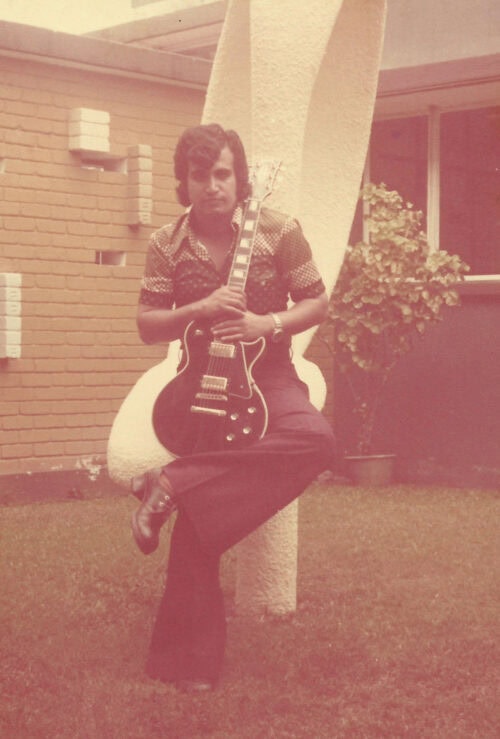
Dato’ Basir Ahmad
In an interview with Paul Augustin for the book, Just For The Love Of It, Basir shared that his admiration for Elvis Presley inspired him to start playing the guitar.
During his younger days, Basir would cycle to clubs and entertainment parks, standing outside to listen to the bands playing. One day, he had a chance to mention to his relative who happened to be legendary P. Ramlee, of his interest in pursuing a music career. P. Ramlee advised him that if he wanted to do that, he had to take it seriously and learn to read music; Ramlee, who was then based in Singapore, would send him music books to hone his music skills.
Another big influence was guitarist Walter Ambrose, who guided Basir when he joined Walter’s band the Shaperos. Basir later then joined the band Enam Sekawan, who were persuaded by Ahmad Merican to change their name to Teruna Ria during a trip to Kuala Lumpur to appear on RTM.
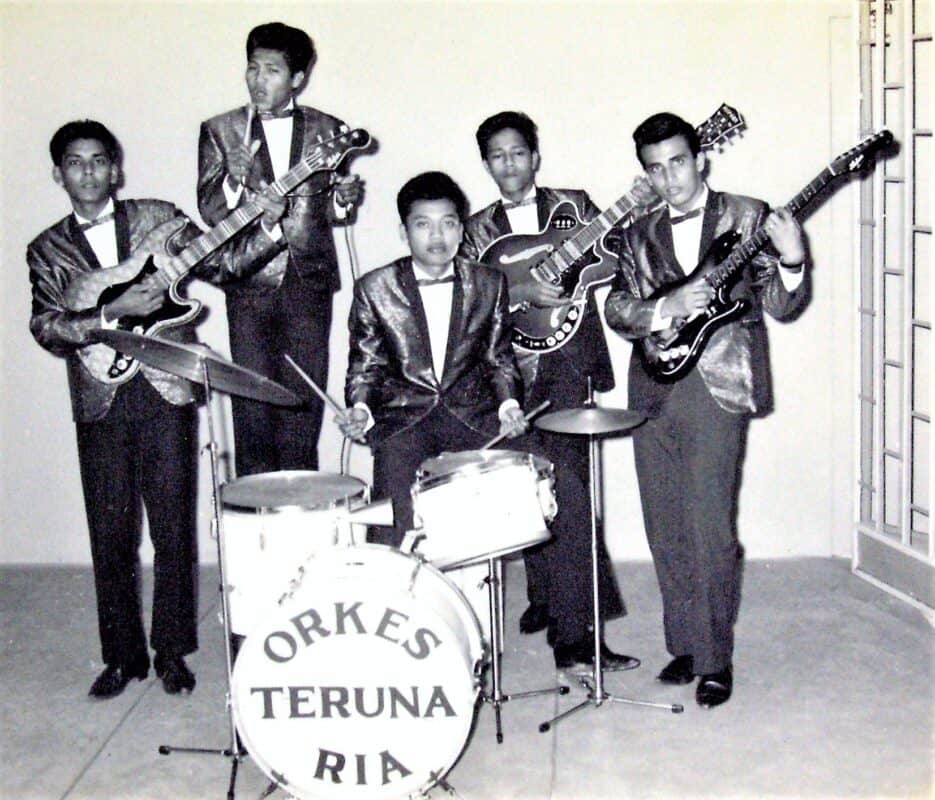
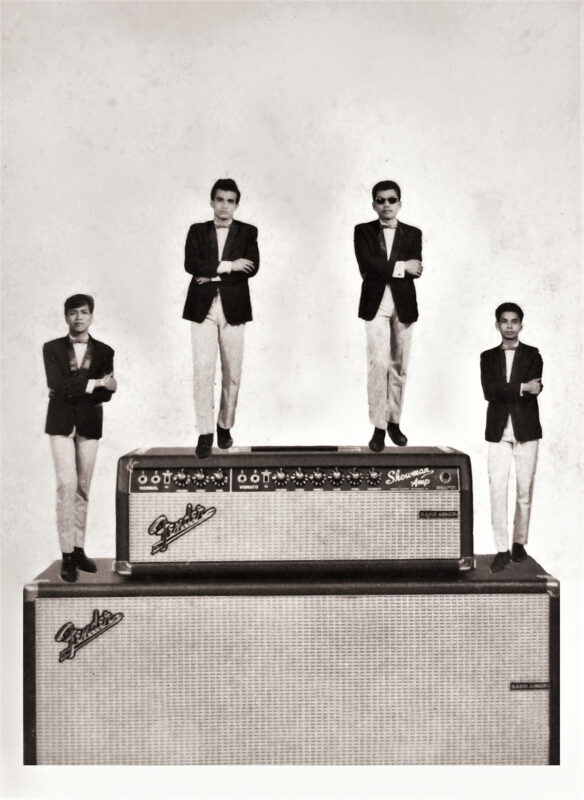
Teruna Ria, whose members consisted of Basir Ahmad himself with A. Manaf, Yaacob Bakar, Rahmat, Yusoff Ahmad, Elias, Abass bin Hj. Abu Bakar and vocalist L. Ramli, scored a “hit” with their first recording ‘Dara Pujaan’. This was followed by a number of subsequent hits, including ‘Antara Kau dan Aku’, ‘Salma’, ‘Pertemuan Terakhir’ and the major 1965 hit ‘Siapa Bilang Aku Tak Sayang’. Teruna Ria was the first band in Penang to have Fender Showman amplifiers.
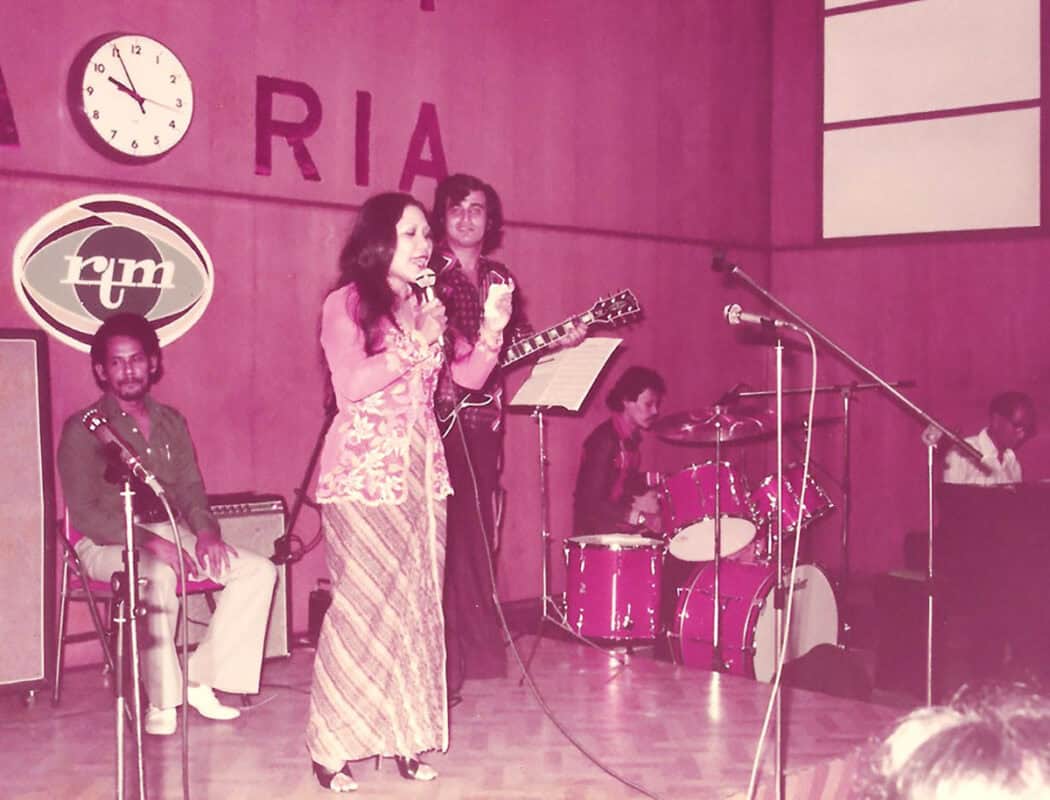
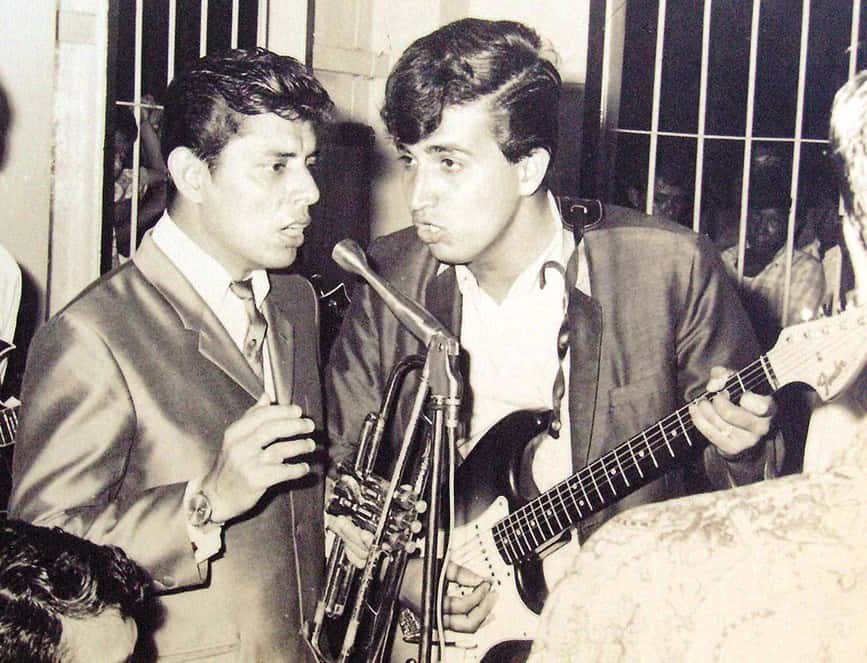
Basir’s continuous efforts to better himself as a musician led him to rise in prominence in the music industry. In 1977, Penang RTM station manager, Zainal Alam brought Teruna Ria to perform at the Penang Week in Adelaide, Australia. Upon their return, the band was offered a contract at RTM Penang. Besides Teruna Ria, Basir also had another band, King’s Cross, and he occasionally sat in with Albert Yeoh’s band in the E&O Hotel. Basir did many recordings for RTM Penang and was eventually appointed the bandleader of the RTM Penang band.
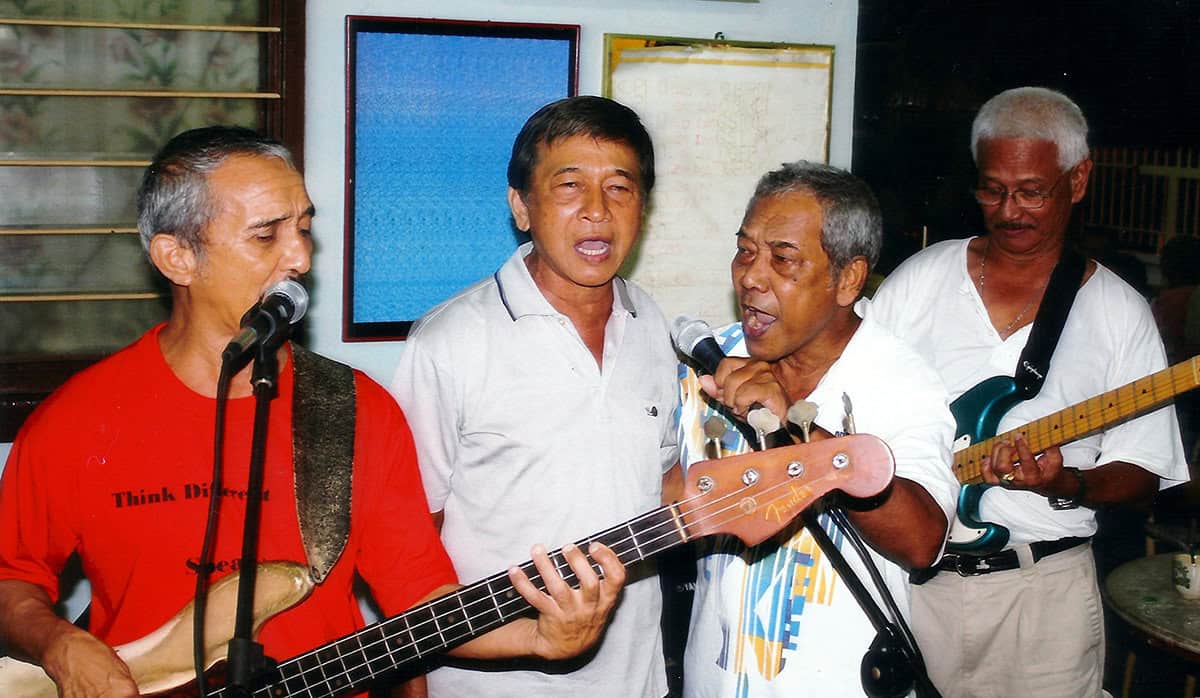
Ralph JeremiahRalph came from a family of musicians and grew up in the Pulau Tikus area, where he was deeply influenced by the many other musicians staying around their home.
The Jeremiah brothers (Leander, Ralph, Homer and Bonnie) all started playing music at an early age and were very involved in the Penang music scene. While Leander, Ralph and Homer balanced music with their day jobs, Bonnie was the only sibling to pursue music full-time.
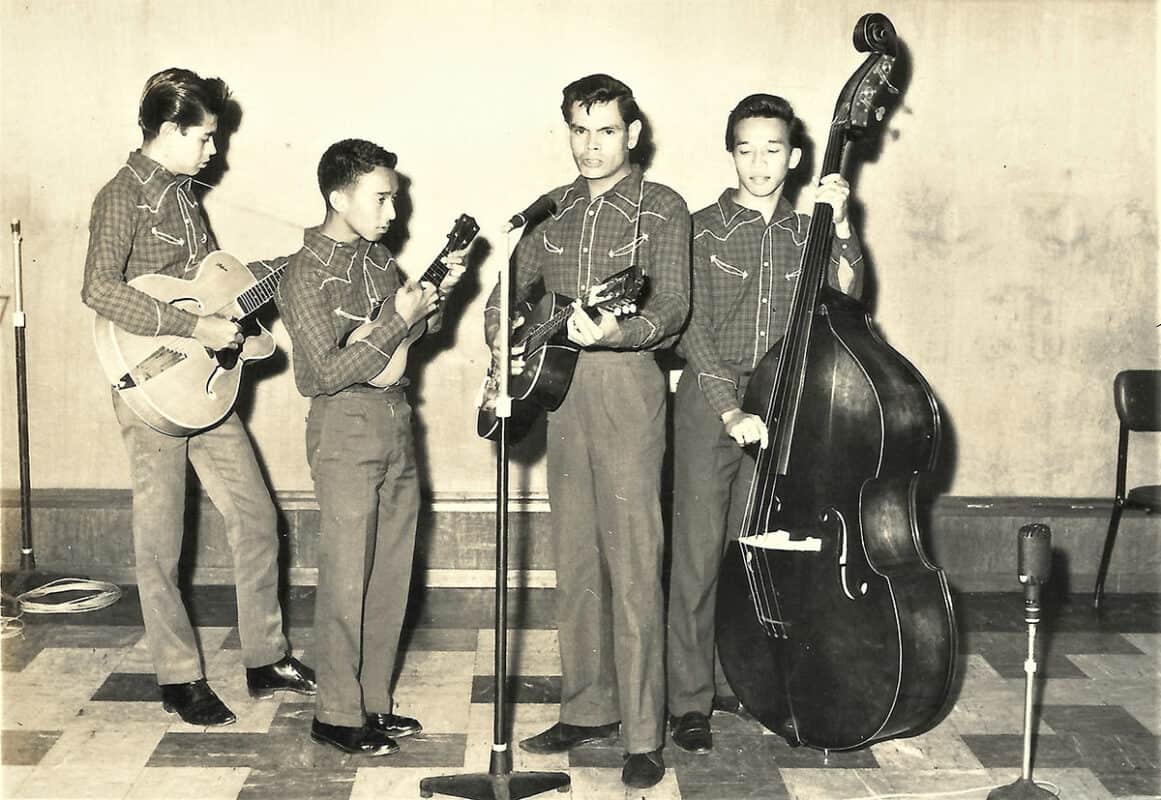
Ralph, who was attached to the RAAF as a dog handler before working at St Nicholas’ Home for the Blind, played the double bass at functions and for recordings. He collaborated with several bands, including Joe Rozells’ band and Rudy Baum’s Country Lads. In his later years, Ralph, who was good with his hands, took up repairing double basses as a hobby.
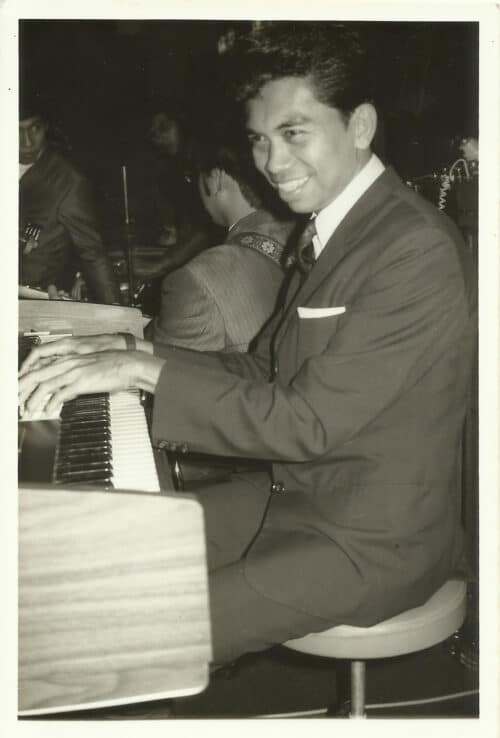
S.M. Idrus
S.M. Idrus started his musical journey by participating in singing competitions. He was placed second in the lagu-lagu asli competition in Taiping in 1956. In 1957, S.M. Idrus entered and won the North Radio Star competition.
In the 1960s, he started singing in clubs and when he showed a keen interest in the accordion and piano, Robert Tan, the leader of Roy Hits & His Amigos band patiently taught him how to play which was something that he was always grateful for. Idrus did a number radio recordings for Radio Penang, sometimes accompanied bands such as Edwin Rajamoney’s Island Rhythmics (Orkes Malam Ini) and Jimmy Ooi’s Combo.
Besides singing in the clubs and recording for radio, he also took part and won several competitions such as the Bintang Radio Utara. He also appeared on Television Malaysia with the first Latinos band consisting of Izham Nordin, Ilyas, Boy Barnabas, Badarudin and recorded for Program Anekaragam.
Idrus joined Teruna Ria in 1970 as a singer cum organist and wrote songs. After leaving Teruna Ria, he joined other bands such as Terry’s Five and Colour Phases. He was approached to take over Robert Tan’s residency with Steven Lim and Zainal Ahmad as the Cempaka Trio at Rasa Sayang Hotel when Robert passed away. It was a gig that lasted a number of years. SM Idrus continued to perform as a soloist in recent years at the Rasa Sayang Hotel lobby till his recent passing.
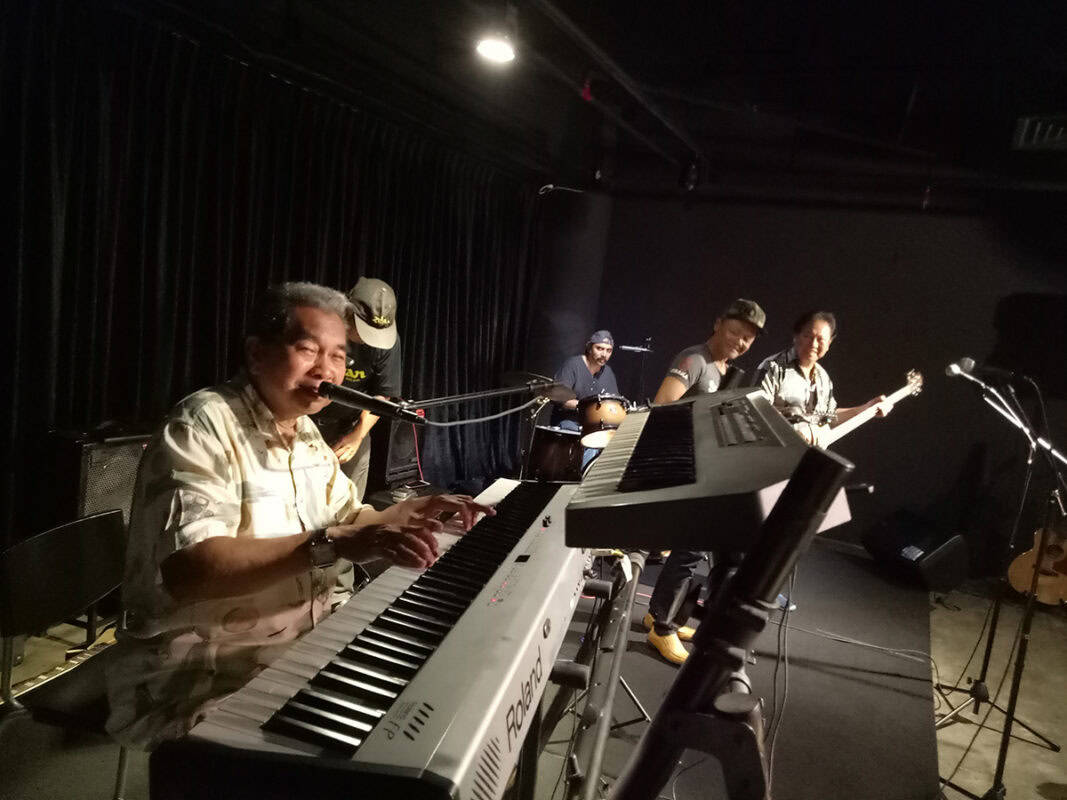
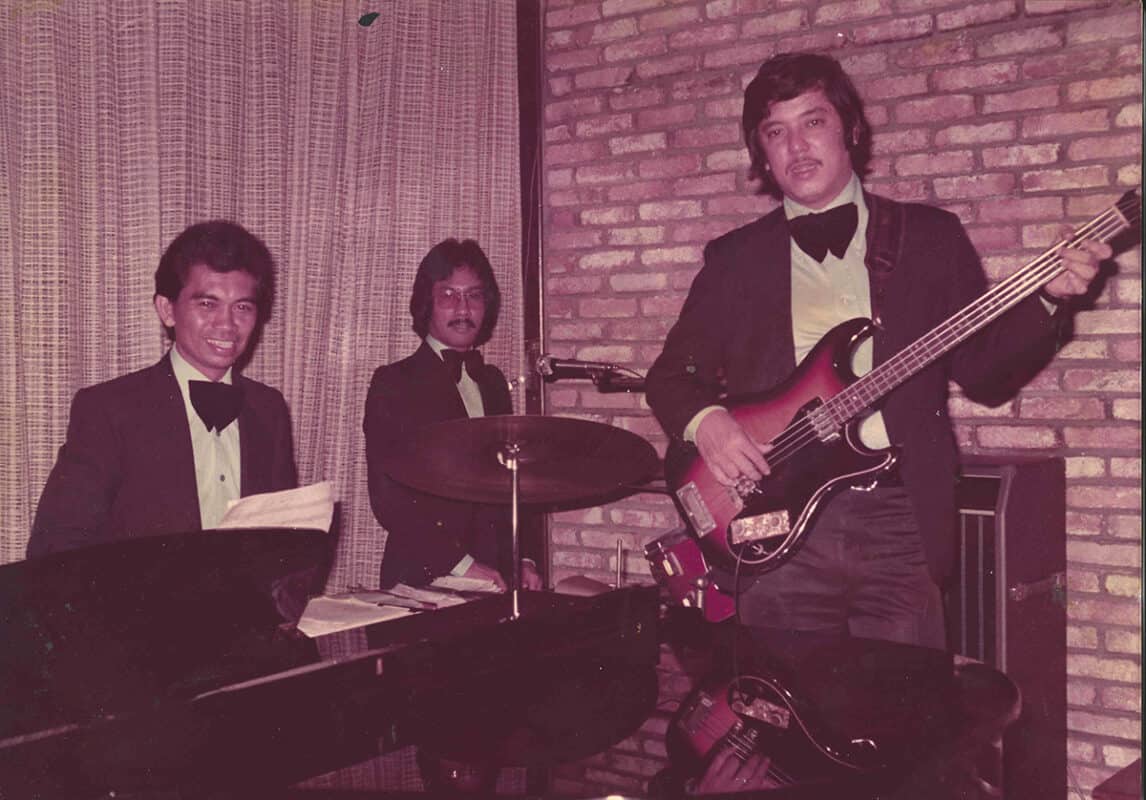
The passing of Ahmad Nawab, Lee Chong Heen, Basir Ahmad, Ralph Jeremiah and others has left a profound gap in Penang’s musical heritage. However, their timeless contributions ensure that their music and influence will continue to resonate, enriching Penang’s cultural tradition for generations to come.
“Music, once admitted to the soul, becomes a sort of spirit, and never dies” – Edward Bulwer-Lytton
Story by K.H. Ong
Pix courtesy of Paul Augustin

